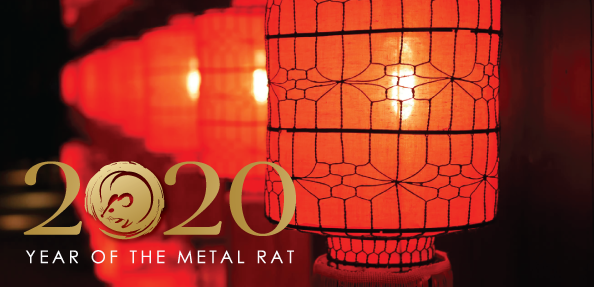Chinese New Year 2013 – Simple tips to bring the most into your year
Chinese New Year 2013 – A Time of New Beginnings and Intentions
By Marlyna Los – Feng Shui Expert
Simple Tips to bring the most into your New Year.
A Chinese proverb states that all creations are reborn on New Year’s Day, providing hope and energy for good things to come into your life.
Chinese New Year is not only a time for celebrations, but also a time of new beginnings and intentions. According to Eastern beliefs how a year begins is a clue to how it unfolds. On February 10th, 2013 the world will celebrate the beginning of a new lunar year, in the Chinese calendar this is described at the 4710th year, the Year of the Water Snake. Millions of people (and not just the Chinese) are studying and reading the Chinese Almanac and calendar seeking to understand and benefit from the upcoming energies of 2013. In China, the Lunar New Year is known as the “Spring Festival”, heralding the start of a new cycle and energies both in heaven and on the earth. There is a full month of customs and traditions associated with this occasion. While some may seem odd to us in the West, they are steeped in ancient logic and custom.
Considered the most significant of holidays, the New Year integrates themes of family, friends, home and food. It is a time to bring intentions, resolutions and respect to practice and seek fortune, prosperity, longevity, happiness and health. Change is the inevitable fact of life, all energies change with time. Change occurs in cycles, which have predictable patterns. 2013 is the year of the Water Snake; the vibrational signature being water and fire. Knowledge is power, and strategy is the key to applying knowledge productively. If you understand what’s coming you have choice, if you know what to expect, you can act rather than blindly react.
The days leading up to the Chinese New Year are very busy with preparation, with families preparing a month or more in advance. As you prepare for this holiday, think of the changes you want to make in your life (never underestimate the power of intention) and then let the power of the new moon, and the New Year make them happen. For single people good fortune may mean love and romance, for others it may mean a promotion, increased prosperity, good grades, a job, better health, or improvement in existing relationships. To pave the way for a successful year filled with good fortune I have put together the following guide to some of the Chinese New Year’s customs and celebrations.
Before Lunar New Years Eve (Feb. 9th)
- Give your home a good spring-cleaning, just like your grand mother used to! Bring new energy and flow into your life! Getting organized and doing a thorough clean is a must. Clear away clutter and mess to welcome in new Qi for the New Year.
- Decorate your home with symbols of good fortune. (Not a lover of Chinese knick knacks, no problem – choose symbols and items that work for you, just make sure that you choose symbols that represent growth, prosperity and happiness).
- Decorate with bright red (happiness), gold and orange (wealth and happiness). The color red is considered the most auspicious of colors; red is a sign of good luck because of its symbolic association with fire, the sun, brightness, and positive life energy.
- Place a bowl of fruit on your table. Oranges, kumquats and tangerines symbolize good health and long life – tangerines with leaves intact symbolize long lasting relationships, and persimmons are associated with happiness and wealth.
- Decorate with fresh flowers and plants, bamboo and plum and peach blossoms are considered particularly auspicious.
- Purchase red banners or couplets with auspicious and prosperous New Year wishes and blessings and symbols of good fortune. Lucky slogan banners are written or purchased and hung, especially on the front door.
- Get your haircut and new clothes, preferably with some red, for a brand new you when the year arrives.
- Pay up all your bills and begin the year with a clean slate. Start the New Year with as little debt as possible.
- Clear up old disputes and arguments, start the New Year moving forward.
- Prepare food. Chinese New Year’s Day is not a day for work. It is a day to eat food especially prepared for the day, often with names which mean good luck, fortune and plenty of money. Ideally, vegetarian food is taken on the first day of the New Year, and the most traditional dish is “Loh Hon Jai”, or Buddha’s Delight, a casserole prepared from a host of dried and fresh ingredients, most of them with names that have auspicious associations.
Some auspicious foods for the New Years Eve and New Year’s Day feasts and their symbolic association are
- Fish – abundance (typically served on New Year’s eve)
- Long grain rice – long life
- Oranges/mandarins – gold plus good health and long life.
- Oysters – prosperous business; “good things”
- Peaches – longevity
- Pineapple – prosperity
- Pomegranates – children
- Sticky rice balls – gold
- Noodles – longevity ( they should not be cut)
- Chinese New Year and prosperous cakes, (they look like golden nuggets.)
- Persimmons – happiness and wealth
- Tangerines with leaves intact – long lasting relationships, fruitful and multiply as in having children.)
- Circular candy tray – candy for sweet, circular for togetherness.)
- Lettuce – fresh new money
- Celery – perseverance and the capacity for hard work
- Dried seaweed, known as “faat choy” – increasing wealth
On the Eve of Chinese New Year February 9th
- Get together with close family members for a “reunion” dinner. A big, delicious dinner creates good luck for the family throughout the year. It also keeps the family close together.
- Pay respect to ancestors including household gods. Acknowledge the presence of ancestors because they are responsible for the fortunes of future generations.
- At the stroke of midnight, it is customary to use firecrackers to engage in pot banging to scare away evil and old energies by sound. Open windows and doors to allow the old year to leave and the New Year to enter. Celebrate with lots of noise and merry-making!
- Watch the words you use; use sweet words and avoid foul language. Talk about your future and dreams, focus on positive thoughts.
Everything associated with New Years day itself should represent good fortune. It is especially auspicious to be with people you love and who bring you joy. Be careful of your actions, be selective of what you eat and be mindful of what you say on this day to ensure good fortune.
On New Year Day February 10th
Celebrate Chinese New Year with family and friends.
- Start the New Year with new, bright-colored clothes, especially auspicious red! One’s appearance and attitude today is believed to set the tone for the rest of the year. Dressing all in black or white is a not considered auspicious.
- Ensure your first taste of the day is something sweet so that the year will bring you much good news.
- Greet everyone with kind words and happy wishes as this is thought to bring in a year of Peace. Be careful not to curse or gossip. The Cantonese greet each other with “Gung Hei Fat Choy” which means “Congratulations! Your Wealth Increases!” Or “Sun Neen Fai Loh”, which means simply, “Happy New Year!”.
- Never cry or complain on New Year’s Day. It is believed that if you cry or complain on this day, that it is an negative omen of what’s to come for the rest of the year. It is best to not gossip, argue with or malign anyone today, (really, isn’t it best to be like that every day?). The focus of today is upon the future, so engage in thoughts and activities of what you would like to see happen and remain positive.
- Keep all doors and windows open throughout the day to allow the new luck to fill your home. Keep every part of your home well lit to ensure maximum luck!
- Don’t sweep the floor, remove garbage or use scissors or get your hair cut today! This signifies sweeping or cutting away your good fortune. Some would go so far as to not wash their hair today; this may be washing away their good luck for the year.
- This is a day of celebration and visiting, paying respect to ancestors. This is not a day to work. Factories and workplaces in China to this day remain closed for the two week period of Chinese New Year’s.
- Many Chinese will be giving offerings to the God of Happiness; in the West you might be more comfortable practicing Gratitude. Create a place in your home with flowers and beautiful things as an altar to symbolize all that you are grateful for.
- Give two Lai See (Red Envelope with money enclosed) to each child. Because happiness comes in twos, do not give just one. This is the way of passing good luck to the next generation. (In some Chinese communities, all married folks give Red Envelopes to all the unmarried children they know and meet during the New Year period. This can be quite a change and a burden for newly married couples!]
- New Years Day is traditionally a Vegetarian Day, signifying no killing on the first day of the New Year.
These are some of the customs and rituals that are practiced by millions of Asian people for Chinese Lunar New Year. Have fun—make them your own! I wish you all the very best for a healthy and prosperous 2013
Gung Hei Fat Choy!
Marlyna Los




